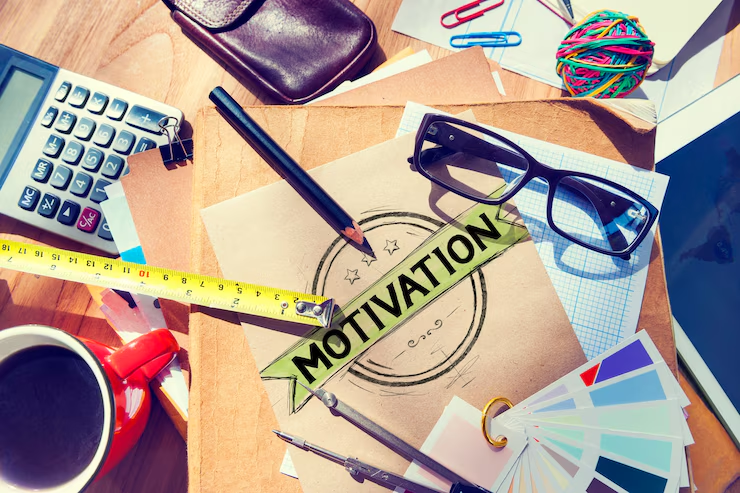Ways to Improve Focus and Concentration
Introduction
In a hyper distracted world full of smartphones social media and endless notifications staying focused is harder and more important than ever. Ways to Improve Focus and Concentration. Whether you a student a professional or just someone trying to be more productive focus is the foundation for success in every area of life.
This article provides practical science backed strategies to help you stay mentally sharp enhance concentration and develop long term habits that foster laser like focus.
Is Focus and Concentration
- Focus is the ability to direct your attention toward a single task or goal.
- Concentration is the capacity to maintain that focus over time without being distracted.
You can think of focus as a spotlight and concentration as keeping that spotlight aimed steadily at one point.
Focus Matters in Today’s World
Strong focus leads to
- Higher productivity
- Better problem-solving skills
- Faster learning
- Improved memory retention
- Enhanced emotional regulation
- Greater success in personal and professional life
On the flip side poor focus can result in stress missed opportunities and a sense of frustration.
Common Barriers to Focus
Understanding what derails focus helps you fix it. Here are some common culprits
- Constant phone notifications
- Multitasking
- Cluttered workspaces
- Sleep deprivation
- Poor diet
- Unmanaged stress or anxiety
- Lack of physical activity
- No clear daily goals
Scientific Insights on Focus and Brain Function
- The prefrontal cortex governs attention and decision making.
- Dopamine influences motivation and mental clarity.
- Too many distractions reduce working memory the brain mental notepad.
- The Default Mode Network (DMN) becomes active when you daydreaming turning it off requires active concentration.
Morning Habits That Boost Concentration

Your morning sets the tone for the entire day. A strong start helps your brain lock into a focused state.
Try This Routine
- Wake up at a consistent time
- Hydrate immediately (your brain is 75% water)
- Exercise (even light stretching or walking boosts blood flow to the brain)
- Eat a balanced breakfast (high in protein and healthy fats)
- Journal or meditate for 5 10 minutes
- Set 3 main goals for the day
Create a Distraction Free Environment
Your environment either fuels focus or drains it.
Tips
- Keep your desk clutter-free
- Use a minimalist layout on your computer
- Close unnecessary browser tabs
- Use blue light filters to reduce eye strain
- Silence notifications or use airplane mode while working
Proven Daily Habits to Improve Focus

Use the Two Minute Rule
If a task takes less than two minutes do it immediately to avoid mental backlog.
Work in Blocks (Time Blocking)
Divide your day into chunks: Deep work shallow work rest etc.
Batch Similar Tasks
Group related tasks (emails, calls, errands) to stay mentally in the same mode.
Review and Reflect Daily
At the end of the day assess what you accomplished and what needs improvement.
Foods That Sharpen the Mind
Certain foods enhance brain function and focus:
- Fatty fish (salmon mackerel)
- Leafy greens (spinach kale)
- Blueberries (antioxidants)
- Dark chocolate (moderate caffeine and flavonoids)
- Nuts and seeds (healthy fats and vitamin E)
- Avocados (good fats for blood flow)
Avoid processed sugars and trans fats they reduce mental clarity.
Hydration and Its Effect on Mental Clarity
Even mild dehydration (1 2%) can impact attention span memory and decision making.
Tips:
- Drink 2 3 liters of water daily
- Eat water rich foods (cucumber, watermelon)
- Avoid excessive caffeine or alcohol
Physical Exercise and Brain Performance
Exercise increases oxygen and nutrient delivery to the brain, improving:
- Mental stamina
- Memory
- Creativity
- Mood
Aim for at least 30 minutes daily of aerobic or strength-based activity.
Foundation of Cognitive Power
Quality sleep is vital for:
- Memory consolidation
- Emotional regulation
- Decision-making
- Concentration
Adults need 7 9 hours per night. Poor sleep poor focus.
Time Management Techniques to Increase Focus
Time management boosts focus by reducing mental overload.
Use
- Pomodoro Technique: 25 minutes work / 5 minutes rest
- Eisenhower Matrix: Urgent vs. important tasks
- Time-blocking calendars (e.g. Google Calendar)
- Priority ranking (ABCDE method)
Power of Mindfulness and Meditation
Practicing mindfulness helps you notice when your mind is drifting and gently return it to the present.
Try
- 10 minute breathing meditations
- Body scans
- Guided mindfulness apps (Calm Headspace)
Benefits include reduced stress and improved focus after just two weeks of practice.
Tools and Apps That Help You Stay on Track
Recommended
- Forest Plant a tree by staying focused
- Freedom Block websites and apps
- Notion Organize tasks notes and goals
- Todoist Clean simple to do list
- Brain.fm Focus enhancing music
Choose tools that simplify not complicate your workflow.
Breaking the Multitasking Habit
Multitasking
- Reduces productivity by up to 40%
- Increases errors
- Causes mental fatigue
Focus Tip
Use full screen mode and disable all alerts when working on a single task.
Digital Detox for Deeper Thinking
Excessive screen time shrinks attention spans.
Detox Ideas
- No-phone zones (e.g bedroom meals)
- One screen at a time rule
- Social media time limits
- Weekly digital Sabbath (one day offline)
Music Affects Your Ability to Concentrate
Some music improves focus while other types distract.
Best Music for Focus
- Classical (especially Baroque)
- Lo-fi beats
- Nature sounds
- Binaural beats (use headphones)
Avoid songs with lyrics while doing verbal tasks.
Managing Stress to Regain Mental Clarity
Chronic stress impairs focus by flooding the brain with cortisol.
Stress Busters
- Breathing techniques
- Daily gratitude journaling
- Talk therapy or coaching
- Spending time in nature
- Regular physical movement
Long Term Lifestyle Changes for Stronger Focus
Small changes add up.
Sustainable Practices
- Stick to regular sleep/wake times
- Schedule weekly planning sessions
- Practice consistent digital hygiene
- Build micro-habits (start with 1% improvement daily)
- Celebrate small wins to stay motivated
Focus Strategies for Students
- Study in the same place daily
- Use active recall (flashcards quizzing)
- Teach the concept to someone else
- Review notes within 24 hours
- Take short breaks every 45 60 minutes
Focus Strategies for Working Professionals
- Set clear work hours
- Start with the hardest task
- Batch meetings into specific days
- Block off no meeting time
- Use the 1 3 5 method: 1 big task 3 medium 5 small
Handle Mental Fatigue and Burnout
Burnout kills productivity and focus.
Warning Signs
- Constant tiredness
- Mood swings
- Lack of interest
- Forgetfulness
Remedies
- Take extended breaks
- Seek support
- Reevaluate workload
- Practice self compassion
Building a Personal Focus Ritual
Develop a custom pre-focus routine. Example
Clean your workspace
Put on focus music
Set a 30 minute timer
Silence your phone
Review your daily goal
Focus and Brain Training Games
Cognitive games are not just entertainment they can sharpen your mental agility and attention span.
Try
- Lumosity: Scientifically designed cognitive workouts
- Elevate: Personalized brain training
- Peak: Daily exercises for memory and focus
- Sudoku / Crossword puzzles: Old-school yet effective
These games challenge your brain to think quickly and retain more which can improve both short-term and long term focus.
Harnessing the Power of Visualization
Visualization isn’t just for athletes professionals use it to focus before meetings performances and high stakes work.
Method:
- Close your eyes and picture yourself succeeding in your task.
- Focus on sensory details what you see feel hear and achieve.
- Rehearse your win in your mind for 2 5 minutes.
This primes your brain to follow through with confidence and clarity.
Role of Goal Clarity in Focus
Unclear goals scattered focus.
Use the SMART framework
- Specific
- Measurable
- Achievable
- Relevant
- Time bound
Break big goals into daily bite-sized steps. Clarity in objectives breeds clarity in focus.
Journaling Builds Mental Discipline
Journaling helps dump mental clutter and improve clarity.
Daily Prompts for Focus
- What are my top 3 priorities today
- What distracted me yesterday, and how will I fix it
- What am I grateful for
- What progress did I make today
Just 5 10 minutes of journaling daily can reduce stress sharpen focus and build self awareness.
Power Napping for Mental Reset
Sleep is not just for night. A 15 30 minute nap in the afternoon can
- Recharge your brain
- Boost learning and memory
- Increase alertness
- Improve accuracy in work
Avoid napping longer than 30 minutes to prevent grogginess.
Link Between Posture and Attention
Slouching limits blood flow and oxygen to the brain reducing alertness.
Improve posture by
- Using ergonomic chairs
- Standing periodically or using a sit/stand desk
- Practicing neck and shoulder stretches
- Maintaining screen height at eye level
Sit up straight and your brain will thank you.
Natural Supplements That May Enhance Focus
Always consult a healthcare professional before taking any supplement.
Popular nootropics and herbs that may boost attention
- L-Theanine + Caffeine (calm alertness)
- Bacopa Monnieri (supports memory)
- Rhodiola Rosea (reduces fatigue)
- Ginkgo Biloba (boosts circulation to the brain)
- Omega 3 fatty acids (supports long-term brain health)
Use supplements as support not a substitute for sleep exercise or good nutrition.
Social Factors That Improve or Destroy Focus
Your social circle can boost or break your ability to concentrate.
Supportive Habits
- Work around focused individuals
- Join accountability groups or mastermind circles
- Share your goals with friends who encourage you
- Reduce time around energy drainers or chronic distractors
Surround yourself with clarity ,driven people.
Using Anchoring Techniques for Mental Reboot
Anchoring is linking a mental state (e.g. calm focus) with a physical action or sensory cue.
Examples
- Rub your fingers together while breathing deeply to anchor calm focus.
- Light a certain candle or play a certain song only when doing deep work.
- Repeat a mantra before each session like “It’s time to focus.
Repetition strengthens the mind body connection and trains your brain to shift into focus-mode on demand.
Managing Overstimulation from the Modern World
The modern lifestyle floods the brain with too much input: news notifications noise.
Reduce sensory overload
- Set boundaries with technology
- Take nature walks regularly
- Limit screen time after 9 PM
- Keep only essentials in your workspace
Give your brain downtime to prevent burnout.
Conclusion
Focus is not a fixed trait it a learnable skill. By taking care of your body mind and environment youll enhance your ability to concentrate for longer periods and get more done with less stress.
Consistency is key. Pick 2 3 strategies from this article and apply them starting today. Over time youll see powerful transformation in your productivity and peace of mind.






